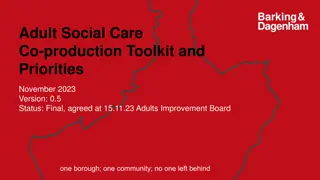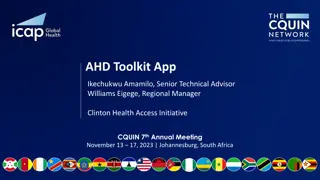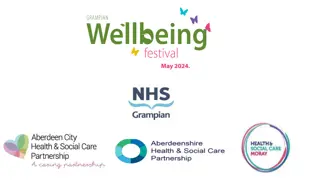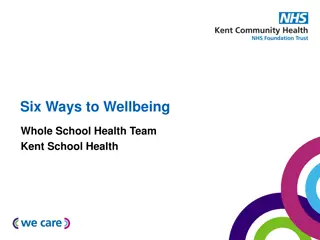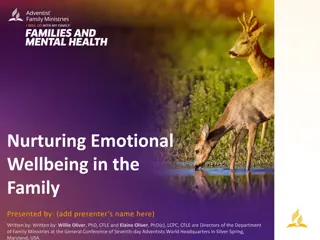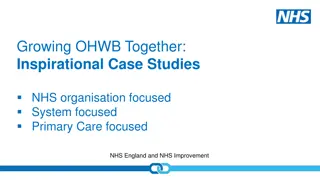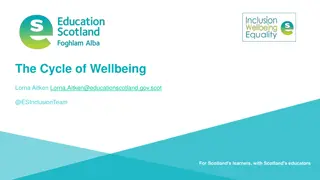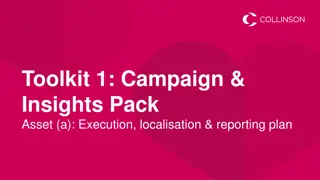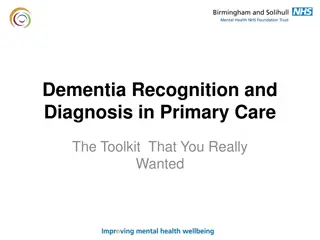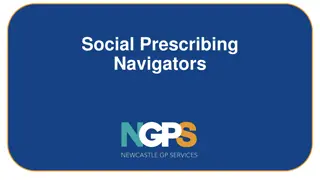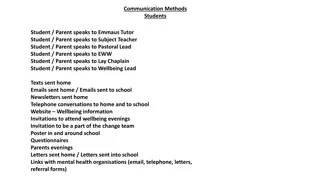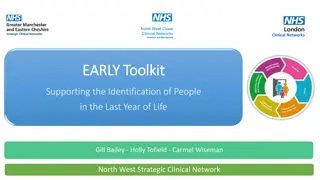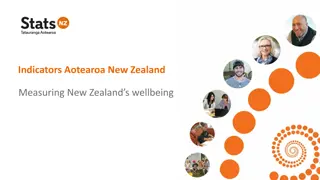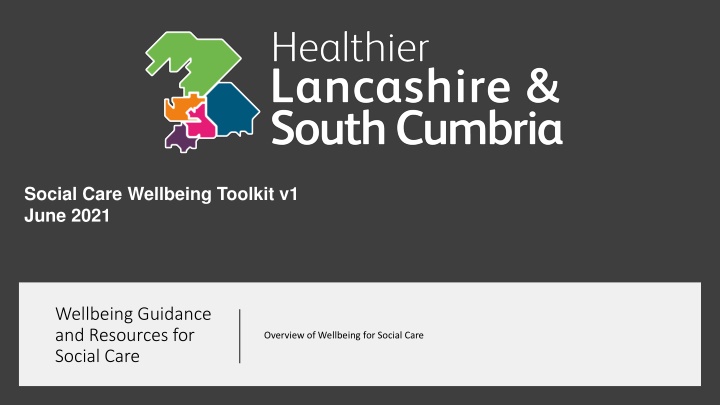
Supporting Wellbeing in Social Care: Guidance and Resources
Explore ways to enhance wellbeing in social care settings, from reflective practices to recognizing when to seek help. Access mental health support resources and tools tailored for social care professionals. Prioritize self-care and promote a healthy work-life balance in the demanding field of social care.
Uploaded on | 1 Views
Download Presentation

Please find below an Image/Link to download the presentation.
The content on the website is provided AS IS for your information and personal use only. It may not be sold, licensed, or shared on other websites without obtaining consent from the author. If you encounter any issues during the download, it is possible that the publisher has removed the file from their server.
You are allowed to download the files provided on this website for personal or commercial use, subject to the condition that they are used lawfully. All files are the property of their respective owners.
The content on the website is provided AS IS for your information and personal use only. It may not be sold, licensed, or shared on other websites without obtaining consent from the author.
E N D
Presentation Transcript
Social Care Wellbeing Toolkit v1 June 2021 Wellbeing Guidance and Resources for Social Care Overview of Wellbeing for Social Care
Thank you This year has shone a light on the commitment of carers across the country. Care staff and nurses have risen to the challenge of providing skilled, compassionate care in the face of the huge challenges of the pandemic. Minister for Care, Helen Whately Add a footer
Check in, Check out Take a moment to reflect on what you have been involved with today. Identify three things that went well. Acknowledge what may have been difficult. Remind yourself that it s okay to ask for help. Remember to be proud of the work you did today. Take a moment to check in with your colleagues. Are they okay? Choose an action that signifies the end of the working day. How are you going to rest and recharge?
Reflection Replaying what you have been through Images or other memories Pay attention to different thoughts and feelings that weren t around before the pandemic Re-evaluation of people, job, relationships Change in mood and habits
When to ask for help If you are experiencing high levels of distress. If you are unable to focus at work or home, are unable to perform daily activities, make decisions, or have poor sleep over a long period. If you have significantly increased or changed your use of substances this may include alcohol, fitness activities, food. If those around you are very worried about you. If you are worried about your ability to keep yourself safe.
Wellbeing Resources Mental Health Support This offers 10 hours of free counselling from a qualified therapist and is available to anyone working in social care to include residential care, domiciliary, supported living, day care and personal assistants. https://www.thecareworkerscharity.org.uk/mental-wellbeing-and-health-support/ Health and care workers can access FRONTLINE Call 0300 303 4434 Call 0300 303 4434 from 8am to 8pm, 7 days a week, for trauma and bereavement support from Just B Text FRONTLINE to 85258 Text FRONTLINE to 85258 Or call 0800 069 6222 call 0800 069 6222 from 7am to 11pm if you re in England, or visit the website: https://www.mentalhealthatwork.org.uk/toolkit/ourfrontline-health/ FRONTLINE Skills for Care have a Wellbeing resource finder which can be found on the following link: https://www.skillsforcare.org.uk/Leadership-management/managing-people/Wellbeing/Wellbeing-tool/Wellbeing-tool.aspx Click the icons below to access the respective websites MIND logo Samaritans logo Togetherall logo small Text line logo Every Mind Matters logo Richmond Fellowship | Mental Health Charity Making Recovery Reality
Bite size Wellbeing Resources A chat show called The Caring View has been created by care managers to voice their views every Tuesday night about the care issues that really matter, you can watch recordings here: Mental Health and Wellbeing The Caring View, YouTube Channel (1 hour) https://www.youtube.com/watch?v=1ZElU7m0Vuk Peer Support The Caring View, YouTube Channel (1 Hour) https://www.youtube.com/playlist?list=PLvEHev1UK7BLyE91k_BxjCr0sgZ8cAJR0 Wellbeing Podcasts, Charlie Waller are hosting these on behalf of the Lancashire and South Cumbria Primary Care Training Hubs which are available to all colleagues across health and social care (10-15 mins each) Listen to them here: Five ways to wellbeing (episode 1) Wellbeing is the theme for this podcast, with Charlie Waller trainers Julie Turner and Debbie Spens. During their light-hearted catch-up, they explore Julie s own twist on the NHS Five Ways to Wellbeing which she calls CALMinG : C Connection A Active L Learning Min Mindful G Giving Looking after ourselves (episode 2) Self-awareness is key to taking care of our mental health and wellbeing. Exploring strategies will help support you through difficult times and enable you to notice when family, friends or colleagues are struggling, empowering you to reach out with kindness and understanding
Financial Wellbeing support from the Money Advice Service All health and social care staff can access: Free, impartial and confidential money advice from Money Advice Service support line Online NHS and Money Advice Service resources Web event recordings on financial wellbeing Free-Phone Line Text WhatsApp Web Chat Add +44 7701 342 744 to your WhatsApp to start a supportive text conversation on debt, credit or pensions guidance Chat on the online portal via this link 0800 448 0826 For free and impartial money advice | Monday to Friday 8am 6pm Type Talk: 18001 0800 915 4622 9 |
We welcome your feedback. Please tell us what you thought of this communication, and share any further wellbeing resources you would like to add to this guide Liz Williams e.williams18@nhs.net Please email:


